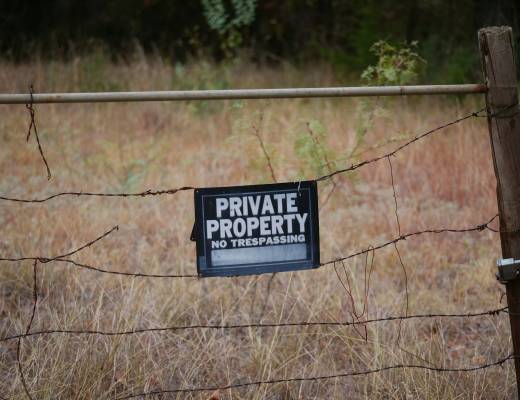What is one piece of advice you would give to entrepreneurs who are afraid of failure, and how did you overcome your own fears and doubts? We asked industry experts to share their experiences, and they offered 15 inspiring insights to help conquer fear and embrace growth.
- Embrace Failure as Learning Opportunity
- Step Out of Your Comfort Zone
- Reframe Failure as Feedback
- Break the Cycle of Fear
- Act Despite Fear
- Failure Teaches Invaluable Lessons
- Ground Yourself in Core Values
- Let Go of What You Can’t Control
- Accept Failure to Move Forward
- Start Small to Build Confidence
- Detach Self-Worth from Venture Outcomes
- Listen to Your Inner Voice
- Seek Help from a Business Coach
- Ask Yourself What If It Works
- Fail Fast and Learn Quickly
How to Overcome Fear of Failure: Advice from Entrepreneurs
Embrace Failure as Learning Opportunity
One piece of advice I’d give to entrepreneurs who are afraid of failure is to refrain from viewing it as a negative outcome. Failure is often seen as something to be avoided at all costs, but in reality, it is an inevitable part of the entrepreneurial journey.
Rather than being afraid of failure, entrepreneurs should embrace it as a learning opportunity and a stepping stone toward success. Each failure provides valuable lessons and insights that can be used to improve and innovate in future ventures.
As for overcoming my own fears and doubts, I have learned to reframe my perspective on failure. Instead of seeing it as a personal defeat or reflection of my abilities, I see it as a necessary step towards growth and improvement. For example, when our first product failed to gain traction, I didn’t give up but instead used the experience to pivot and create a more successful product.
Moreover, I have also surrounded myself with a supportive community of fellow entrepreneurs and mentors who have provided valuable guidance and encouragement during challenging times. This has helped me build resilience and confidence in my abilities as an entrepreneur.
Failure should not be feared but rather embraced as a natural part of the entrepreneurial journey. With the right mindset and support system, entrepreneurs can overcome their fears and doubts and use failure as a catalyst for growth and success.
 Amira Irfan
Amira Irfan
Founder and CEO, A Self Guru
Step Out of Your Comfort Zone
If you’re not failing, you’re not trying anything new. There is no possibility of growth in doing only what you are familiar with.
In many ways, being comfortable is the absolute worst place to be if you’re an entrepreneur—particularly a new entrepreneur. How much do you NOT know about running your own business? That question is not to scare you, but actually to inspire you.
Within your comfort zone is everything you currently know and are willing to do. Bo-Ring! If you just want the same results you’ve been getting, you can stay there…but I bet that’s not why you became an entrepreneur. You want more.
Outside of your comfort zone is infinite possibility and potential, and probably all the things you wish to achieve. They do not exist where you are, otherwise, you would have achieved them already and would be comfortable with them.
My advice: Embrace the idea that there are no failures, only learning opportunities.
If you set a goal and stumble, as you get back up, ask yourself: what did you learn from the stumble? Apply that learning as you move forward. The more you stumble, the more you dial in to what can and will work.
I overcame my fears by doing exactly this. Eight years ago, when I left the comfort of a regular (and sizable) paycheck, due to burnout and frustration, I had no idea how to run my own business. I did know that staying with what was comfortable financially was actually killing me mentally, emotionally, and physically.
I fell down a lot…still do sometimes because I’m always adjusting course and trying new things. Some stick, some don’t, but if I don’t give them a shot, I’ll never know what can catapult me to the next level.
Your next level is beyond your current comfort zone. Trust and commit to taking a new action that’s uncomfortable.
 Daniel Olexa, MCC, CIHt
Daniel Olexa, MCC, CIHt
Founder, Leadership Coach, Transcendent Living
Reframe Failure as Feedback
Fear of failure is a universal experience for entrepreneurs-you’re not alone in feeling it. My advice? Don’t fixate on avoiding failure because, in entrepreneurship, failure is inevitable in some form. Instead, focus your energy on reframing failure as an essential part of the journey, not the end of it. When you view failure as feedback-valuable information that guides you toward what works—it becomes less about what went wrong and more about what you can learn.
When I started my company, I wondered if blending creativity and professional development through methods like Creative Integration would resonate. Would clients find value in workshops using LEGO SERIOUS PLAY or trust-building through spoken word? My doubts were loud, but I also knew the only way to succeed was to try.
I learned to quiet my fears by choosing curiosity over certainty. Instead of asking, “What if this doesn’t work?” I reframed it to, “How might I make this work?” That shift in mindset transformed fear into possibility and kept me moving forward.
Another strategy that helped was building a strong support network of mentors, peers, and collaborators. They reminded me that entrepreneurship isn’t a solo journey. Asking for guidance and support isn’t a sign of weakness—it’s a strength.
To those navigating fear: take the leap, embrace the falls, and stay curious. Failure isn’t the opposite of success—it’s a step toward it. The real magic lies in trusting yourself to transform setbacks into opportunities and to keep moving toward your vision.
 Van Lai
Van Lai
Founder|CEO| Author, What if Pigs Can Fly? a Practical Guide to Follow Your Curiosities, worksmart Advantage
Break the Cycle of Fear
We don’t talk enough about how fear of failure, procrastination, and perfectionism are all in cahoots and keeping us from our full potential! Here’s how it works:
- We’re terrified of failure because what would it say about us? That we picked the wrong career? That we’re awful at this? That no one will ever hire us again?
- So we’re perfectionists because it feels like the only fool-proof way to avoid failure.
- But we procrastinate because the immense weight of needing things to be perfect makes it easier to just not try. Because what if we fail?
And the cycle continues, over and over again, unless we find a way to break out of it.
For me, the solution has required a few perspective shifts that I recommend to any entrepreneur stuck in a similar cycle:
- Treat everything as an experiment
- Redefine failure as data
- Remember that almost nothing is permanent
- Give yourself permission to pivot
- Focus on the next, best step
 Susana Boey
Susana Boey
Fractional CMO & Founder, Untangling Ideas
Act Despite Fear
Remember that most fears are stories your brain tells to protect you unnecessarily. Fear often exaggerates risks, while reality tends to be kinder when you act. Don’t aim for confidence; aim for curiosity and let action build momentum over time. Mistakes hurt less than regret, and progress beats standing still every single time. Courage grows in increments—you don’t need to feel ready to start. I embraced the idea that I couldn’t fully control outcomes, only my actions. Journaling helped me organize swirling fears into practical next steps I could tackle. Sharing vulnerabilities with my team fostered a culture where fears became normal, not shameful. Each time I acted despite doubt, I realized courage wasn’t the absence of fear. It was taking steps forward while carrying that fear with me.
 Alari Aho
Alari Aho
CEO and Founder, Toggl Inc
Failure Teaches Invaluable Lessons
If you’re an entrepreneur afraid of failure, spoiler alert: you’re not alone. I’ve been there, too—sitting in the trenches of doubt, wondering if my next move might tank my business dreams. But guess what? I’ve learned that failure is just the tuition you pay for success.
- Remember the Cost of Not Trying: Imagine staying in your safe zone, never taking risks, and wondering five years from now, “What if?” That regret stings way more than a misstep ever will. Every failure teaches you something invaluable. So shift the mindset: failing isn’t fatal—inaction is.
- Practice Self-Compassion: Beating yourself up over every little hiccup? Not helpful. Trust me, I’ve been there—questioning my worth after a campaign didn’t perform as planned or a strategy flopped. The turning point? Giving myself grace. Failure doesn’t define you; how you bounce back does.
- Experiment and Learn: Here’s the secret sauce: treat your business like a science experiment. Test, tweak, and track. Not every move will work, but every outcome gives you data—gold that leads to future wins. I built my agency, Karizma Marketing, by embracing this exact approach. A failed ad? It’s just data to refine the next strategy.
What helped me overcome my fears? I leaned into the process, not perfection. I reminded myself that every successful entrepreneur once stood where I did—scared but determined. And I surrounded myself with people who believed in the mission, even when I had doubts.
You’ve got this. Take the leap. Adjust along the way. And know that fear is just your brain’s way of saying, “You’re doing something big.” Lean in.
 Toccara Karizma
Toccara Karizma
CEO, Karizma Marketing
Ground Yourself in Core Values
Failure is not the end of the road, it is simply a bend. If I had one piece of advice for entrepreneurs who are afraid of failure, it would be to fail fast and learn quickly. Do not let your fear of falling prevent you from running. Every stumble teaches us something, and every lesson leads to progress. It’s tempting to romanticize success stories, yet every breakthrough is preceded by a series of mistakes. Accept them as rough drafts for your success story.
When I embarked on this journey as an entrepreneur, doubt was an uninvited guest, staying over and over again. I’d wake up thinking whether I was making the right decisions, whether I had it in me to lead, or whether the idea would even resonate with the world. And then I read something very simple yet profound from Thomas Edison: “I have not failed. I’ve just found 10,000 ways that won’t work.” Those words became a mantra.
The truth is, that fear feeds on doubts and uncertainties. But that is where I changed my perspective to overcome it. Instead of viewing failure as a dead-end, I started seeing it as feedback. What am I doing wrong? How could I do it right next time?
Building my company was no exception. We had technological problems, finance issues, and market competition. Some days, I wonder if we’re going too quickly or too slow. However, I discovered that if you stay focused on your actions, fear loses its grip.
I also surrounded myself with people who believed in my vision, even while I questioned it. They reminded me that it is okay to be fearful, but it is not okay to allow that fear to take over your heart. You will have days when the uncertainty is simply too much to handle; but, you must hold on. Nelson Mandela once stated, “I never lose. I’ll either win or learn.” That’s the mindset you need to maintain in those instances.
An entrepreneur must be passionate about the process as much as the outcome. Success is never a straight line; it’s a jumbled mix of effort, mistakes, and perseverance. If you’re terrified of failing, remember that the biggest failure is not trying at all. You don’t want to look back years later and think, “What if?”
Fear will always be there, but you need to take action. Keep going forward, learning, and believing. That is how success will come to you.
 Sandeep Kashyap
Sandeep Kashyap
CEO & Founder, ProofHub
Let Go of What You Can’t Control
One piece of advice I’d give to entrepreneurs who are afraid of failure is to ground yourself in your core values and remember the strength they bring you. I struggled with this after the financial crisis in 2009, when I was about 30 years old. It was a time of uncertainty, and like many entrepreneurs, I doubted whether I could weather the storm and keep moving forward. What helped me overcome those fears was taking a step back to realign with the values that made me start my business in the first place—things like integrity, resourcefulness, and the belief in my ability to solve problems creatively.
I also realized that fear of failure often comes from focusing too much on the big picture and the “what-ifs.” Breaking things down into smaller, actionable steps helped me regain a sense of control and momentum. Instead of letting the fear paralyze me, I treated every small win as proof that I was moving in the right direction.
Ultimately, failure isn’t the end—it’s part of the process. It’s where you learn, adapt, and come back stronger. My experience taught me that trusting in your values and your ability to navigate challenges is what makes you resilient as an entrepreneur. That’s the power that gets you through even the toughest moments.
 Christine Wetzler
Christine Wetzler
President & Founder, Pietryla PR & Marketing
Accept Failure to Move Forward
It’s rare to find someone who is completely free of doubt because no matter what level of certainty you might have, nothing is going to be perfect. Entrepreneurs have it even worse since starting new ventures is cutting-edge work with big risks. So, I deal with doubt and fear similarly to how I approach chronic pain. The primary axiom I discuss in my talk, Liberating the Leadership Mind, is: “Let go of the things you can’t control to master the things you can.” Take steps to lower the level of fear or pain (prepare, check and recheck, do relaxation exercises), but make space for the fear that remains by letting go of judgment. Judgment can sneak into the process of overcoming fear, like, “Oh, I’ve done all I can, and I still have doubt.” Let go of judgment and ego to help bring calm to the work and focus on what truly matters.
 Douglas Scherer
Douglas Scherer
Business Advisor and Author, F.O.R.G.E.D.
Start Small to Build Confidence
Failure is how we learn. The sooner you accept it, the sooner you start moving forward. I recently saw one creator say that embarrassment is how we pay for success. Because in order to become better at something, you need to try and most likely fail or even embarrass yourself. But there’s no other way, just through. Unfortunately, no one told me this when I was starting my career, so I had to learn the hard way. I had an idea for a company, and I just went for it.
So, I just dove right into failure. At the time, I didn’t know enough about investors and growing your audience, so naturally, there were lots of mistakes on my part. But had I not made them, I wouldn’t be where I am today. I just kept trying again and again, until eventually, we perfected our service, defined our values, and started gaining customers.
 Maria Gavriil
Maria Gavriil
CEO, EssayHub
Detach Self-Worth from Venture Outcomes
The one piece of advice I have for fearful entrepreneurs is this: it is better to start small in bits and build confidence. Your momentum will build and, at the same time, you will reduce the fear of bigger risks later by taking incremental steps toward your goals. This, in turn, minimizes effects from setbacks but at the same time provides a good base to escalate from, especially when speaking about transition from stability into entrepreneurship.
It was the hardest decision that I made during the course of my life when I decided to get into my first business, and at that time, I was positioned as a Portfolio Manager with a well-reputed ERP company. My career was going strong and promising ahead. It was a comfortable position; people respected me, and I was on a perfectly clear pathway to growth in the long term. The scary part was to say goodbye to that stability for what I was about to do with the unknown. What if I fail? What if I should leave everything I worked for so hard and not have a chance to prove my mettle?
I took time to make that leap, rather than jumping straight into it. I started taking on little consulting gigs, generally in the evenings and on weekends. These were small enough to test my entrepreneurial prowess while not putting my primary source of income at risk. I began realizing the really nice value I could provide outside of the “corporate world,” slowly boosting my confidence.
Eventually, as those learnings and cumulated happy clients started to gather under my wings, I began to see a clearer way ahead. I realized that I could probably scale those opportunities into something bigger. Every small project taught me new things like how to manage clients, negotiate contracts, and add value in ways that “fit” my own vision. More importantly, every small success chipped away at the fear and doubt hounded.
 André Ahlert
André Ahlert
CEO and Managing Partner, AEX
Listen to Your Inner Voice
The best advice I can give is to detach your self-worth from the success or failure of your venture. Early in my company’s journey, I made the mistake of tying my confidence to the results of every decision. It was exhausting and unsustainable. What helped was breaking the cycle: I focused on refining our process rather than worrying about the outcome.
Failure became easier to face when I saw it as feedback rather than judgment. If something didn’t work, I dug into the reasons why, adjusted, and moved forward. Entrepreneurs should focus on building systems that adapt instead of chasing perfection. Resilience is built by refining, not avoiding, what doesn’t work.
 Roman Hipp
Roman Hipp
Co-Founder, BetterContact
Seek Help from a Business Coach
Listen to your inner voice, not your fear. Fear is loud, persistent, and keeps you stuck, but your inner truth is quieter and speaks through your energy—that feeling of excitement, passion, and authenticity. When you sense that energy, it’s your true self guiding you toward what you’re meant to do. Recognize the things that give you energy and follow them relentlessly, even when fear tries to hold you back. Understand that everything you truly want is often on the other side of the very thing you fear. Acknowledge your fears, name them, and confront them head-on. Don’t let fear lead you to a life that’s too small. Instead, commit fully, unhedged, and go all in on what excites you. Trust that voice—because that’s where your full potential and power lie.
 Abbas Abidi
Abbas Abidi
Co-Founder, LeSo
Ask Yourself What If It Works
My advice to entrepreneurs who are afraid of failure is to seek help and advice from a business coach or a therapist. When I was looking to start my business I had a lot of impostor syndrome, it held me back massively and meant I waited years to start my business despite being ready for it a while earlier. I saw a business coach, who I thought would just give me tips on how to do business, however we spent months talking about my journey, my fears and doubts and I learned how to challenge my learned behaviors to become a better business person.
 Matt Collingwood
Matt Collingwood
Founder and Managing Director, VIQU IT Recruitment
Fail Fast and Learn Quickly
Ask yourself, “What if it works?”
Our brains are trained to search for the worst-case scenario, the proverbial sabertooth tiger lurking in the bushes. It’s survival instincts and sometimes they serve us well, but most of the time they blind us to what’s possible.
Asking yourself and allowing yourself to think about “what if it works” instead of “what if I fail” is a mindset shift.
Our business is undergoing a transformation. In 2025, we’ll open as an all-inclusive destination for animal experiences after 15 years of being a local zoo. Our prices will go up, our target audience will change, and we might alienate people who have supported us for years.
But what if it works? We will create wow moments with animals that get you closer and teach you more than anywhere in the world. These experiences will inspire our guests to make pro-environmental change and become stewards for animals in the wild. We’ll have a positive impact on the planet and create memories for people that they’ll be talking to their grandchildren about. Families will enjoy carefree timelessness. Kids will giggle when dad gets slobbered on by a giraffe. Teenagers will smile and pose for a photo with an otter on their lap. Daughters will pick up every piece of trash they see after their visit because they don’t want it going out into the ocean and affecting their new best penguin friends.
Once you know what happens if it works, then the risk of failure feels worth it.
 LynnLee Schmidt
LynnLee Schmidt
COO, Tanganyika Wildlife Park
 Amira Irfan
Founder and CEO, A Self Guru
Amira Irfan
Founder and CEO, A Self Guru
 Daniel Olexa, MCC, CIHt
Founder, Leadership Coach, Transcendent Living
Daniel Olexa, MCC, CIHt
Founder, Leadership Coach, Transcendent Living
 Van Lai
Founder|CEO| Author, What if Pigs Can Fly? a Practical Guide to Follow Your Curiosities, worksmart Advantage
Van Lai
Founder|CEO| Author, What if Pigs Can Fly? a Practical Guide to Follow Your Curiosities, worksmart Advantage
 Susana Boey
Fractional CMO & Founder, Untangling Ideas
Susana Boey
Fractional CMO & Founder, Untangling Ideas
 Alari Aho
CEO and Founder, Toggl Inc
Alari Aho
CEO and Founder, Toggl Inc
 Toccara Karizma
CEO, Karizma Marketing
Toccara Karizma
CEO, Karizma Marketing
 Sandeep Kashyap
CEO & Founder, ProofHub
Sandeep Kashyap
CEO & Founder, ProofHub
 Christine Wetzler
President & Founder, Pietryla PR & Marketing
Christine Wetzler
President & Founder, Pietryla PR & Marketing
 Douglas Scherer
Business Advisor and Author, F.O.R.G.E.D.
Douglas Scherer
Business Advisor and Author, F.O.R.G.E.D.
 Maria Gavriil
CEO, EssayHub
Maria Gavriil
CEO, EssayHub
 André Ahlert
CEO and Managing Partner, AEX
André Ahlert
CEO and Managing Partner, AEX
 Roman Hipp
Co-Founder, BetterContact
Roman Hipp
Co-Founder, BetterContact
 Abbas Abidi
Co-Founder, LeSo
Abbas Abidi
Co-Founder, LeSo
 Matt Collingwood
Founder and Managing Director, VIQU IT Recruitment
Matt Collingwood
Founder and Managing Director, VIQU IT Recruitment
 LynnLee Schmidt
COO, Tanganyika Wildlife Park
LynnLee Schmidt
COO, Tanganyika Wildlife Park







